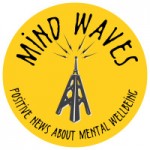We’ve been talking about looking after your mental health online a lot recently; one of Mind Waves’s wonderful interns created an animation about how to relax without going online, I ran an Instagram poll on how the internet affects your mental health, and we had a chat with Liam about positive mental spaces during his interview on the blog that went up a few months ago.
So, I thought that for this weeks blog post I could delve into the reasons why the internet – specifically social media – might negatively affect your mental health, and how to curate your accounts in a way that can help you feel more positive.
Many of us spend hours and hours of the day looking at a screen; we use the internet for our jobs, to stay in contact with loved ones, and sometimes to just switch off and scroll mindlessly (I am definitely guilty of this). The internet has endless benefits and can often be a really positive thing, but it also has its downsides. 84% of you said that the internet affects your mental health in a negative way during one of our Instagram polls a few months ago.
Today I want to focus on social media specifically. Although these websites and apps can connect us with each other like never before, it’s also very easy to fall into a negative cycle full of feelings of comparison, jealousy and uselessness. I want you to have a think here: when you go onto a social media site, say Instagram, does it make you feel good or bad about yourself? If you answered bad- why?
First of all, I want to remind you that you are in control of the things you post and consume online, nobody else. You are allowed to post whatever you want – within reason! Mind Waves will never condone hate speech – and follow whoever you want. By deciding what kind of things you want to see online and curating your following/friend list accordingly, you can essentially control the kind of things you see. Obviously, this doesn’t account for everything. Sometimes, things you do not want to see can slip through the cracks and you might feel upset by them. There is no way to completely eradicate social media of things that affect you negatively, but cleansing your feed of people/things that don’t make you feel good is a great start.
Maybe your feed is full of people with perfect lives and this makes you feel like you’re doing something wrong. You aren’t! Social media encourages people to share the highlights of their lives and erase the more vulnerable or difficult moments. Unfollow the people that make you feel like you’re inadequate and fill your feed with things that make you feel good. If someone you know personally is making you feel inferior with their posts and you don’t feel like you can unfollow them, Instagram, Twitter and Facebook all have mute options so you can continue messaging them privately, but don’t see their public posts But remember that you don’t owe anybody your ‘follow’ and if you want to follow exclusively funny dog accounts, you can do that!
Maybe the things that affect you negatively are more news based. Sometimes, tragic videos or pictures may appear on your timeline, and you want to look away, but you feel like you have a duty to look. This is a tricky one, and it is important to stay informed about the world around you, but sometimes it can get a bit too much. If you’re in an incredibly negative headspace and world news can make it worse, there is no shame from filtering news stories out of your social media feeds. I would actually recommend a complete break from scrolling social media when you’re in this kind of mindset. Concentrate on keeping in touch with the people that love you and looking after yourself. But what about when you’re feeling good and you want to keep it that way, but you also want to remain informed about what’s going on in the world? Well, I would say that we never have a ‘duty’ to consume content that makes us feel awful, watching a graphic video doesn’t help anybody and turning it off doesn’t mean that you don’t care. You can choose to view the news in a different way, in a way that is separate from social media. You can subscribe to receive emails from news outlets, download an app that you only open when you feel able to consume news content, or sign up for a newspaper subscription – online or delivered through your letterbox. As long as you’re vigilant about finding credible news sources, there are loads of ways to stay informed on current events without projecting a constant feed of misery and terror right into your eyeballs (I’m looking at you, Twitter).
I know that this advice isn’t perfect. Lots of people – like me! – use social media for their jobs and cannot control the kind of content they see. There’s no simple solution to something as complex as the internet but I hope that these tips at least give you permission to take ownership of your personal social media accounts.
I’d like to give a quick shoutout to Liam who I interviewed about Twitch streaming back in June. Our conversation and a few things Liam mentioned about online spaces totally inspired this blog post. Read his interview here and check him out @liamthemusicguy on Twitter. Finally, if you’re interested in the link between social media and mental health, make sure you keep an eye out for the next episode of the MindWaves podcast! That’s all I can say for now, folks!


No comments yet.